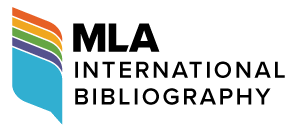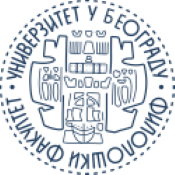Creation of utopia within Inca melancholy
DOI:
https://doi.org/10.18485/beoiber.2024.8.1.22Abstract
Melancholy is a concept that has traveled throughout the history of human beings. At each moment it has taken on certain characteristics. This article tries to analyze how this concept has been metamorphosed at the time of the conquest of the Inca empire by Spanish giving rise to the creation of utopia within Inca melancholy thank to the different chroniclers who gave shape to this notionReferences
Agamben, Giorgio. Estancias. La palabra y el fantasma en la cultura occidental. Valencia: Pre-Textos, 2006. Impreso.
Alcina, José. Mitos y literatura quechua. Madrid: Alianza, 1989. Impreso.
Burga, Manuel. Nacimiento de una utopía. Muerte y resurrección de los incas. Lima: Centro de Producción Fondo Editorial de la Universidad Mayor de San Marcos, 2005. Impreso.
Ficino, Marsilio, De Amore. Madrid: Tecnos, 1986. Impreso.
Flores Galindo, Alberto. Buscando un inca. Lima: Editorial Horizonte, 1988. Impreso.
Gurméndez Carlos. La melancolía. Madrid: Espasa Calpe, 1994. Impreso.
Kristeva, Julia. Sol negro. Depresión y melancolía. Caracas: Monte Ávila Editores Latinoamericana, 1991. Impreso.
Lepenies, Wolf. Melancolía y utopía. Barcelona: Atmarcadia, 2008. Impreso.
Ossío, Juan Martín (edit.). Ideología mesiánica del mundo andino, I. Lima: Prado Pastor, 1973. Impreso.
Steiner, George. Diez (posibles) razones para la tristeza del pensamiento. Madrid: Siruela, 2005. Impreso.
Tellenbach, Hubertus, Melancolía. Madrid: Morata, 1976. Impreso.
Todorov, Tzvetan, La conquista de América. Madrid: Siglo XXI Editores, 1989. Impreso.
Vargas Llosa, Mario, La utopía arcaica. José María Arguedas y las ficciones del indigenismo. México D.F: Fondo de Cultura Económica, 1996. Impreso.
Downloads
Published
How to Cite
Issue
Section
License
Copyright (c) 2024 Ainhoa Segura Zariquiegui

This work is licensed under a Creative Commons Attribution-ShareAlike 4.0 International License.
Authors who publish with this journal agree to the following terms:
- Authors retain copyright and grant the journal right of first publication with the work simultaneously licensed under a Creative Commons Attribution-ShareAlike 4.0 International License that allows others to share the work with an acknowledgement of the work's authorship and initial publication in this journal.
- Authors are able to enter into separate, additional contractual arrangements for the non-exclusive distribution of the journal's published version of the work (e.g., post it to an institutional repository or publish it in a book), with an acknowledgement of its initial publication in this journal.
- Authors are permitted and encouraged to post their work online (e.g., in institutional repositories or on their website) prior to and during the submission process, as it can lead to productive exchanges, as well as earlier and greater citation of published work (See The Effect of Open Access).













